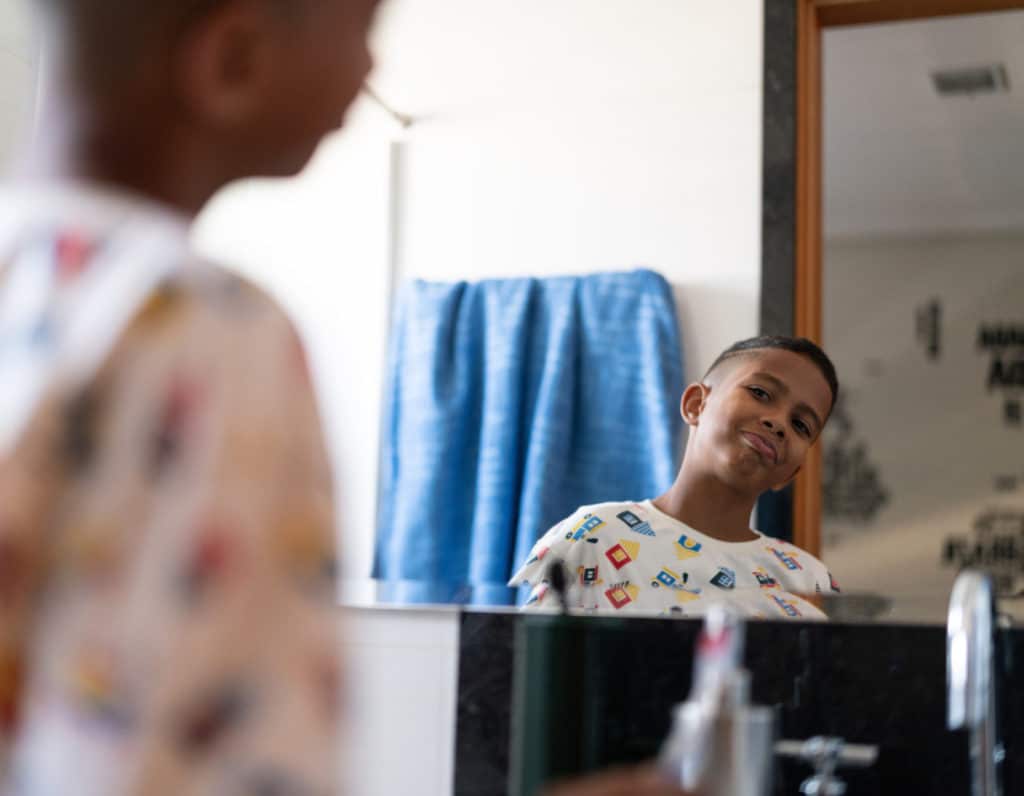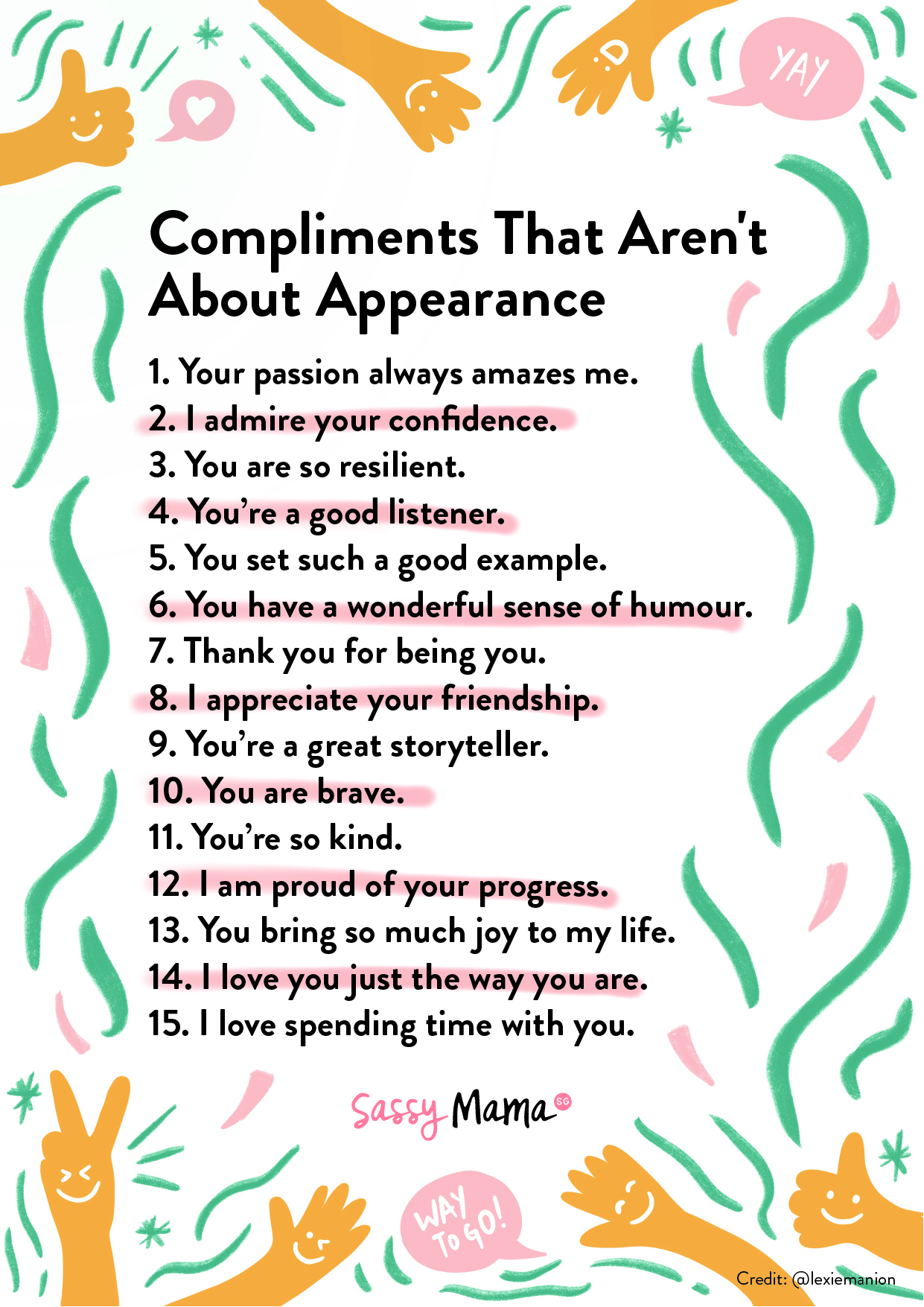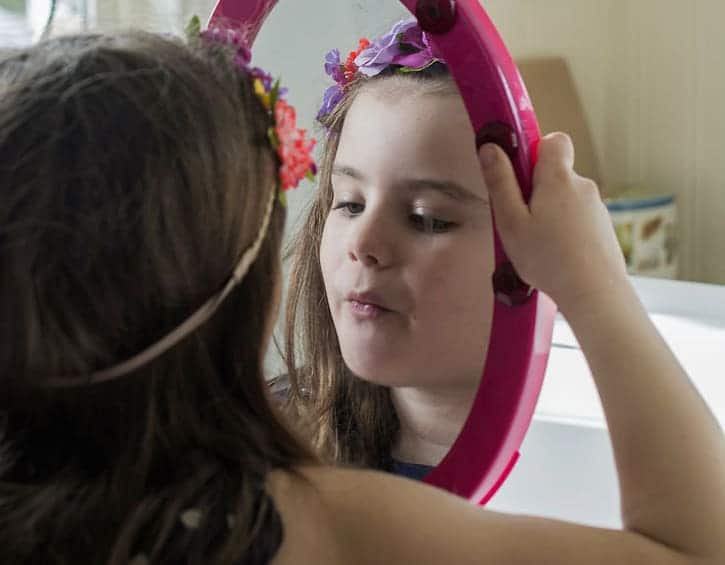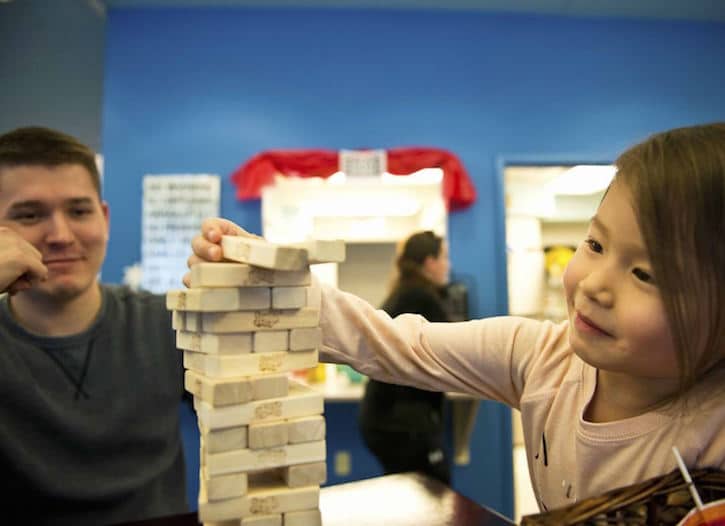
 Post Category - ParentingParenting - Post Category - Toddler & PreschoolerToddler & Preschooler - Post Category - Older KidsOlder Kids
Post Category - ParentingParenting - Post Category - Toddler & PreschoolerToddler & Preschooler - Post Category - Older KidsOlder KidsMinimise appearance-based compliments to avoid your child feeling their self-worth is centred on how they look
Tell a little girl that she’s pretty or a little boy that he’s handsome and their faces typically light up! So, it’s a nice thing to say, right? Turns out it may not be. Psychologist Pip Johnson recommends we should avoid commenting on our children’s appearance — and explains what we should do instead.

How commenting on appearances can be harmful
Commenting on our children’s appearance is very common. And why wouldn’t it be? They are just so darn cute! Yet while the odd comment about their appearance is likely ok, what we want to avoid is them feeling that their self-worth is centred on how they look. That is, that the people around them evaluate them based on their appearance, as opposed to who they are on the inside.
The academic world has coined this to be ‘self-objectification’ – where individuals think of themselves as objects to be viewed and evaluated based upon their appearance. Sadly, self-objectification is very common and drives a focus on achieving or maintaining culturally set standards for how one should look. This can lead to poor body image, appearance-based anxiety, and in more serious cases, eating disorders. This doesn’t only impact girls either; recent research suggests that boys also feel the pressure to have muscly lean physiques.

How to handle external body image messaging
Body-related messages are everywhere and so are very difficult to avoid. One study showed that many of the popular Disney movies (e.g. Cinderella, The Little Mermaid, and, ironically enough, Beauty & the Beast) contain 10 or more body image-related messages and place emphasis on physical attractiveness. Maybe that explains the findings from another study that children just 3-5 years of age ascribe more positive qualities (e.g. who they’d invite to a party!) to figurines that are thinner as opposed to larger.
As children grow up, the messaging from media will be compounded by appearance-focused messaging by peers. Parents, peers and media makes up the triad of influence on our children, so let’s at least try and influence what we can influence and not have our children grow up thinking that we also evaluate them based on how they look. Limiting this also means reducing our own negative ‘body chat’ (so no talking down your own body, mama!) and role modelling positive eating behaviours. If the topic of bodies and eating comes up, focus on being ‘healthy’ and ‘strong’ as opposed to physical size.
What are good compliments?
Praise is a hot topic! While there are mixed views on whether any praise should be offered at all, one thing that is clear is that we should not praise fixed traits (e.g. “you’re so smart”). The reason that praising traits is counterproductive is that it can lead to kids having a ‘fixed mindset’ (rather than a growth mindset) and to giving up more quickly when faced with setbacks or failure (e.g. “I’m having trouble so I mustn’t be that smart after all”). To foster a growth mindset, Carol Dweck (the growth mindset guru) recommends praising effort – e.g. “I’m so impressed with how hard you worked!”
Others (see Alfie Kohn for lots on the topic) recommend no praise at all – the reasons for which are many but relate to praise being seen as a form of conditional love, and (in some cases) reducing intrinsic motivation (leading to kids instead being motivated by external rewards). Not using praise is really hard though, right? I know often when I use praise it’s not that I’m trying to control their behaviour – it’s that I’m really excited about something they’ve conquered and want to celebrate the achievement with them. Plus, kids are often praise-junkies, so it can feel a little cold to go cold turkey!

How to break the habit
There are three things you could offer instead:
- Reflect back what you have observed as opposed to your judgement – e.g. “Wow, you’ve used lots of colour in this drawing”, or wow, “You climbed all the way to the top!”
- Engage them to talk about what they’ve been doing and ask how they feel about it – e.g. “Tell me about your drawing, what do you like best about your drawing?” Or, “How did it feel when you got to the top of the climbing frame?”
- Show your love and appreciation of them more broadly – e.g. “I’m so proud of you”, “I love spending time with you”, or “my favourite part of today was when we did XYZ together”.
When it comes to compliments and praise, it seems that what’s kind in the short term may be less kind in the long term. By holding back explicit praise, particularly that which is appearance- or trait-focused, we are allowing our children to better develop their own sense of motivation and internal compass, which will better support their ongoing development, self-acceptance, and happiness in the longer term. And that’s what it’s all about, right mama?
Read more:






 View All
View All




 View All
View All









 View All
View All










